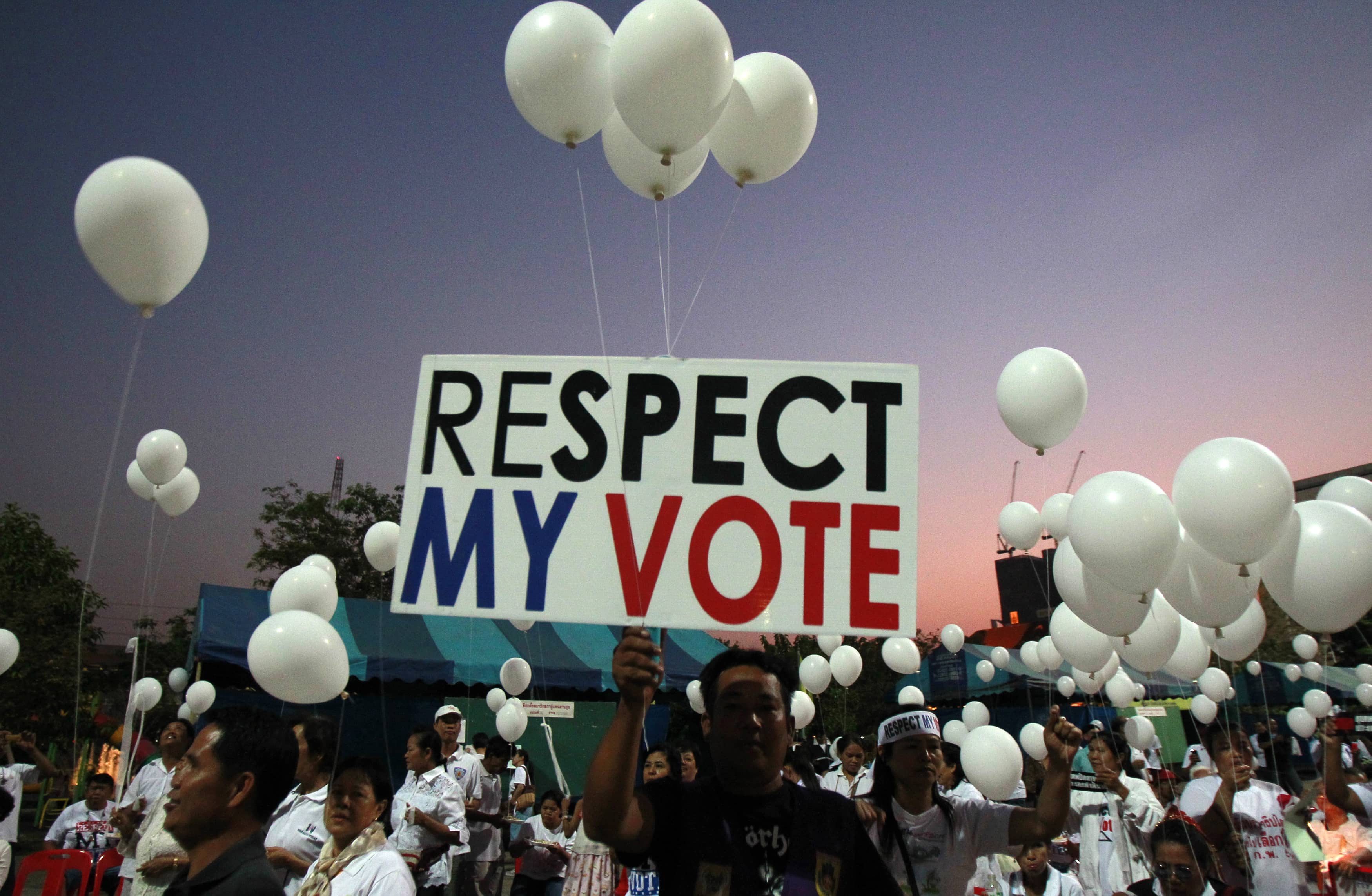Thailand's upcoming landmark election presents a rare opportunity to listen to what the people have to say in this protracted political crisis, says SEAPA.
There is widespread concern about the high potential for violence on the February 2, 2014 elections in Thailand, where a protracted political crisis has dragged on with no immediately foreseeable end as tension continues to mount.
The rising tension has kept many citizens from speaking out because of risks associated or the unwillingness to contribute to further polarization, as each side has invoked the name of the people for their respective ends.
As this crisis has unfolded over the past three months, a number of opportunities have been wasted to initiate dialogue as each side only puts forward an agenda that can promote particular interests.
For instance, the election campaign could have provided the optimal space to put forward reform proposals from contending political parties. Instead it is seemingly a one-sided contest and ironically a potential powder keg as it approaches.
Similarly, the media could have been a potent space for debate, instead of becoming launch pads for publicity, and a target of intimidation and pressure as a battleground for political propaganda.
The lack of any consensus from both sides of the political divide on how to approach the coming elections has virtually guaranteed the polls to be a futile political exercise that can undermine legitimacy of the future government and also unable to ease political tensions afterward.
Sunday’s election opens up countless potential flash points of violent confrontation as protesters have vowed to derail the exercise, while another side mobilizes followers to defend voting. Given that this election is the issue at this point, it is also highly unlikely that the polls will contribute to reducing political animosity that has resulted in 10 persons being killed in confrontations, and targeted shootings and bombings.
Considering the context which resulted in the political exercise, the February 2 election will at best give a hollow victory for the ruling party because of the boycott of the main opposition party. With many seats coming from lopsided contests, any additional seat gained will not contribute to legitimizing its mandate to govern, if a new government can be convened at all.
Yet, the landmark event on Sunday also presents a rare opportunity to listen to what the people have to say in this protracted political crisis. For a human rights perspective, both voting and protesting are legitimate acts of free expression, equally essential to the fulfillment of a citizen’s right to political participation and democracy. Both protagonists in this conflict also have valid points and strengths to contribute if only they can agree to work together toward genuine reform.
So, instead of being a day of reckoning to determine victors, the elections and the protests on February 2 can combine to produce an unparalleled opportunity to gauge the national mood. This is an important barometer that can point the direction of how to move forward from the crisis. February 2 can be transformed into a starting point for dialogue towards the resolution of the crisis in the medium to long term.
The challenge is to guarantee the realization of the word “freedom” in the phrase “freedom of expression”, which means that all who wish to exercise this right is unbound by any form of coercion and threat in order to be able to make a proper decision.
As such, it is crucial for Thais to mutually respect both forms of action, voting and protests.
Everyone’s common task on February 2 is to keep the peace to ensure that every Thai, no matter her or his political leaning, will be able to make a stand and be heard.



